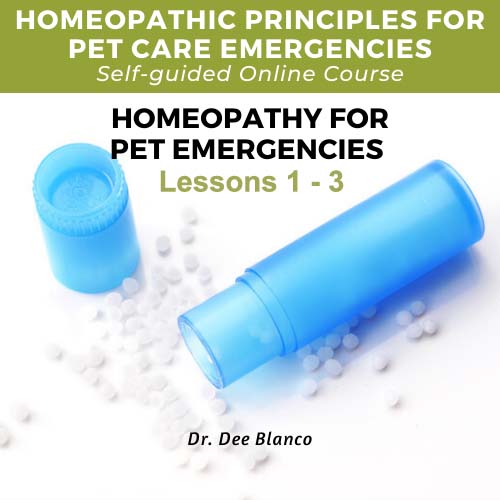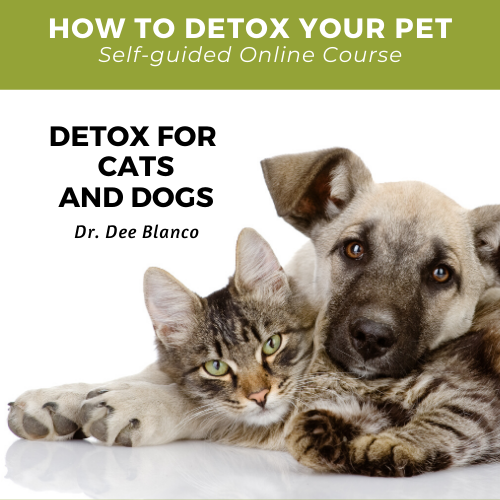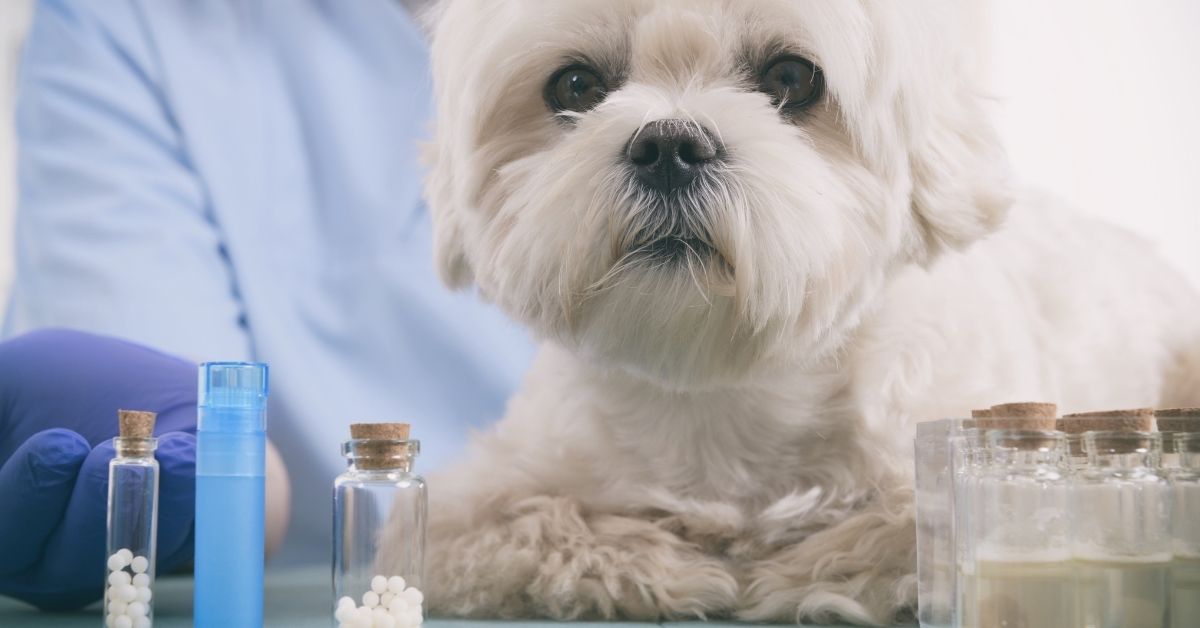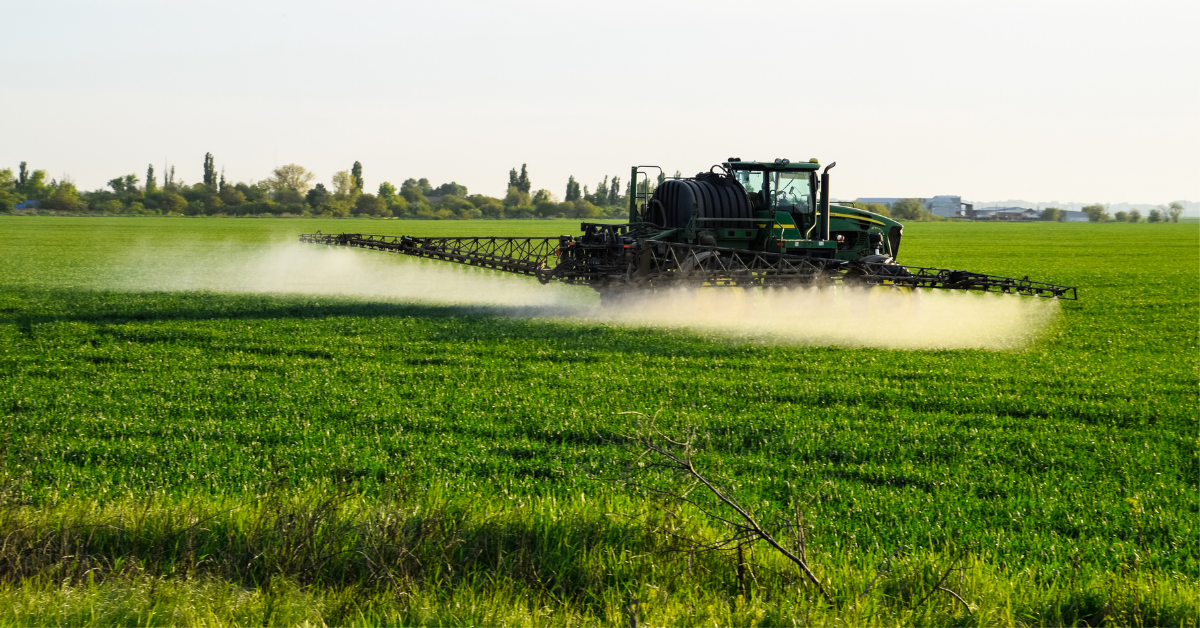I wrote about the insidious and widespread use of glyphosate in my blog titled What Pet Parents Really Need to Know About Glyphosate. In this article, I wanted to focus on the health hazards related to glyphosate and what that could mean for you and your animals.
The World Health Organization (WHO) classified glyphosate as a “probable carcinogen” in 2015. The presence of glyphosate was seen as a possible link to conditions including, but, not limited to non-Hodgkin lymphoma, pancreatic islet-cell adenoma, renal cell carcinoma, and skin cancer. The cumulative exposure to glyphosate over the course of our lifetimes from our environment, food and water reveals just the tip of the proverbial “iceberg” where cancer is concerned.
There are at least 3 pathways glyphosate can take to cause cancer in your pets.
The ways glyphosate can likely increase the risk of cancer are numerous; however, there are 3 pathways which tend to occur most frequently at the time of this writing:
1: Glyphosate attacks the gut poking holes through the delicate lining, causing the illness we call “leaky gut.”
Good gut health relies on the microbial co-inhabitants within the body. These friends, especially Lactobacillus and Bifidobacterium, are the powerhouse factories for B-vitamins and folate. They ensure the healthy synthesis and repair of DNA.
Glyphosate is an antimicrobial targeting these species of microbiota. Without adequate levels of folate, methylation is inhibited. Furthermore, the modification of heavy metals, regulation of gene expression and regulation of protein production/function is likewise hampered. Translation: No friendly bacteria, no folate. No folate, no healthy DNA. No healthy DNA, no healthy cells. Equals cancer.
2: Glyphosate attacks the natural resources we need to fight cancer.
Roundup and its active ingredient glyphosate inhibits an enzyme (succinate dehydrogenase) responsible for suppressing tumors and the up-regulation (turning on) and increased efficiency of using sugar as an energy source.
When glyphosate is introduced into the body, tumor cells can use sugars more than 200 times better. Translation: Glyphosate converts sugar into turbo jet fuel for cultivating tumors.
3: If you want to detox it out, here’s the thing: glyphosate exposure inhibits the body’s ability to release toxicants of all types.
Glyphosate blocks the production and metabolism of sulfates, which are critical for the detox enzymes in the liver (CYP enzymes or Cytochrome P450 enzymes).
These enzymes are uber-important for the use of vitamin D in the body, for cholesterol balance and for the production of bile acids that break down fats and balance the metabolism of sex hormones, just to name a few. It’s thought that impaired sulfation capacity leads to slower metabolism of sex hormones and to subsequent increased breast density as well as an increased risk of breast cancer. With the current rate of one in three women contracting breast cancer, glyphosate could be a big contributing factor that’s rarely discussed.
Here’s an important challenge to the idea that early spaying and neutering of our pets can reduce their risk of cancer of the breast or prostate: if they are eating glyphosate poisoned foods during a time when their metabolism of sex hormones is decreased, you do the math! If they’re eating fresh glyphosate-free foods, hormones are our friends in cancer defense, so leave your dog or cat intact!

Dr. Dee's Detox Protocol
The combination of these three products is the start of a gentle detoxification process. Price: $139
By blocking the Cytochrome P450 pathway, the body is inhibited from detoxifying many other toxicants, including glyphosate itself, effectively causing detoxification to come to a screeching halt.
In my practice, I’m seeing more animals with elevated liver enzymes than ever before. I’m also seeing it in animals who do not receive flea, tick or heart worm pesticides, or other toxicants. It’s more than probable that exposure to glyphosate is a contributing factor to their elevated liver enzymes.
Translation: Detoxification is blocked!
So, now what? How do I better protect my pets from the impact of glyphosate?
- Spend your money lavishly on fresh foods for your pets – especially non-GMO, organic! Otherwise start saving for that $10,000 (at least!) vet bill when your six-year old dog comes down with cancer.
- Feed sulphur-rich foods: cruciferous vegetables, garlic, fish, poultry, legumes, nuts, seeds.
- Feed manganese-rich foods: spinach, nuts, seeds.
- Feed folate-rich foods: broccoli, beets, asparagus, liver, avocado (no pits), legumes (yes for dogs!).
- Feed mineral concentrated foods like spirulina, chlorella, alfalfa, or kelp; Combined in RoundUp, 2,4-D (aka Agent Orange) and POEA, an emulsifier made from animal fat which has been found to be 3400 times more toxic to human kidney cells than glyphosate itself making RoundUp an even more deadly cocktail than just glyphosate!
- Feed probiotic-rich foods (fermented foods) or probiotic supplements.
- Feed a fulvic and humic acid supplement to repair gut damage. (See Dosing Note below.)
- Feed activated charcoal: only on a short-term basis, to bind toxicants. 1/4 tsp per 10 lbs added to food for about a week, from time to time.
- Feed bentonite clay: only small amounts and infrequently, used to bind toxicants. Give 1/4 tsp per 10 lbs added to food 3 times a week for one week.
- Glutathione or its precursor n-acetyl-L-cysteine, giving 250 mg a day to small dogs, 500 mg to medium dogs, 750 mg a day for large and 1000 mg a day for giant breeds.
- If you must use commercial foods, choose GMO-free foods. Check out the Non-GMO Project’s list of non-GMO pet products at nongmoproject.org and look for their stamp on the food package. There are many other small companies with GMO-free foods. Support them!
- Stop using herbicides (especially Roundup) or pesticides. Use biodynamic or organic pest control instead.
- Politely educate your neighbors about the risks of glyphosate to their family members.
- Avoid parks, lakes, schoolyards (yes!), golf courses or other areas that have likely been sprayed with herbicides. Do your research and ask public officials what and when they spray at your favorite dog park.
- Give your dog regular detox baths using an organic, unscented shampoo.
- Give your dog regular detox supplements for the liver including B-vitamins and amino acids. (See Dosing Note below.)
Dosing Note: When using supplements made for humans, assume the dose is for a 150 lb person and adjust for your dog’s weight.
What else can you do about glyphosate?
Aside from what you can do for your animal, there are a few more steps you can take on the behalf of all us!
- Get active! Nothing about glyphosate use will change without public awareness and on-the-ground action!
- Demand our public officials create legislation (as other countries have) to ban glyphosate and label all GMO products.
- Demand protection from ALL veterinary medical associations, including the AVMA. Maybe they’ll actually protect our animals from these toxicants instead of claiming that the use of natural medicines is dangerous! Maybe they’ll put pressure on the food manufacturers whose products they sell in their practices to clean up their prescription diets.
- Boycott pet food companies that support Big Ag’s use of dangerous products.
- Support companies who are diligently sourcing clean products, even if it costs you more.
I truly believe that glyphosate could easily be the most biologically disruptive chemical in our environment, harmfully affecting ALL life forms now and into the future.
In our lifetimes, its dangerous potential is equivalent to that of DDT in environmentalist Rachel Carson’s day.
We (animals, humans and plants) need a new right. The right to NOT be poisoned. Without this right being honored you and your animals will never be free from human-created diseases.









